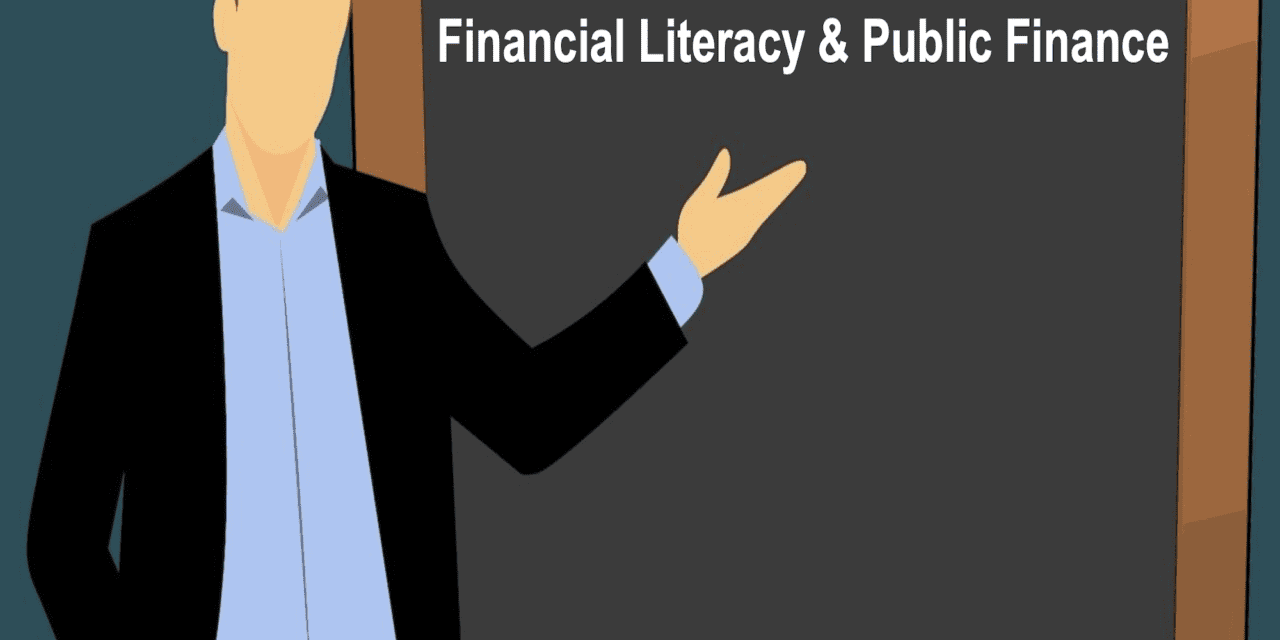Last updated on July 16th, 2022 at 02:42 pm
Financial literacy education must be taught in school now. This course should include public finance and personal finance. There is no excuse for students not learning these essential life skills. Drop those nonsense courses on alternative lifestyles and sexuality and insert financial literacy in their place. Do it now.
After speaking with the curriculum director for a Mississippi Gulf Coast county school district, I am convinced that a good one-semester course in financial literacy should be required and not just an elective.
Some schools do not have a course to take even as an elective. Some schools cover this financial literacy with other life topics but it’s not enough.
We teach our kids about math but stop there. 38 states have implemented some type of financial literacy education, it should be all 50 states. Stopping at an elective course that is watered down with other topics does not do the subject justice. Our kids are graduating from high school without a basic understanding of how to balance a checking account or account for debit card use.
Why are so many struggling through life?
Money is at the heart of a large number of divorces. Money is the reason for suicides, depression, and job loss. People lose their houses because they did not pay their property taxes. The public complains about taxes without understanding what taxes do to improve their lives. A good deal of this misery could potentially be avoided with early education.
Ask yourself, did you teach your children about basic finance? Did your parents teach you? I already know the answer, no. My parents did not discuss financial stuff with any of my siblings. We learned by trial and error.
I recall when I was in high school, the subject was included in “home economics”. Everyone thought that class was just about cooking. I wish I had known, I would have taken it.
During my interview with the educator, I learned that often state legislators want to do the right thing and create a required course but they fail to support the courses with funding for the teachers. As parents, grandparents, and concerned citizens, all of us should become involved in this discussion. Spending what would amount to “chump” change on financial literacy education can help the economy in so many ways.
More people could buy homes
The biggest reasons why people can not afford to buy a home are first their inability to save for the down payment and second their absolute ability to destroy their credit. I conclude that both are part of the root cause of little or zero understanding of basic finance.
I recall speaking to my employees on numerous occasions about investing in the company 401k plan. These young 20-something individuals did not have a clue why they should put in x dollars from their paycheck. They failed to understand the “free” money provided by the company as a match and how that can grow. About 10% joined, the others stumbled through their puberty failing at finance.
Students in high school could be taught how to manage a debit card and the need to pay off credit card balances at the end of the month. The damage not doing this can cause to their credit reports and the very large cost to them later in life when they try to buy a house.
So many people that my colleagues and I come into contact with pay outsized interest rates because they failed to be good stewards of credit when they were younger. Some don’t learn even when they get older except through bad experiences.
A case in point
A client bought a house on credit. When the purchase was one year old, the homeowner’s insurance company informed the client that the cost of insurance had gone up, a lot. My client thought (he was told differently by the closing attorney) that his payment would stay the same forever. He failed to save enough for the payment and struggled to catch up.
This client did not grasp the difference between principal and interest payments and the actual total payment he owed each month. A few minutes in front of the attorney and all he left with was the idea that his P&I total would not increase in 30 years.
I was there when the attorney told him that the insurance and tax portions are subject to change and would change during the 30-year term. It seems he heard what he wanted to hear, the P&I would not change.
My point here is this is not uncommon. Also not uncommon is that people think that they can remove missed payments and foreclosures from their credit reports just because. No one told them that computers keep records.
Teenagers can learn this stuff
Kids are smart. They can become financially literate if they are taught correctly. I contend that with the correct curriculum and teacher that students can become engaged. Use real-world examples throughout not just dry points about how the FED raises interest rates. Teach them how their actions can affect their future on a positive or negative basis. Again, use real-world examples. Compounding interest for example.
I had my grandson come to the office one day. He asked if he could earn some money. I said he could. He met the office manager who gave him a job and arranged to pay him for the work. Since he was only 11, the money came from my pocket (he did not know). He worked all day and was paid on a basis of each item he folded. I asked if he wanted to go to lunch. He said yes but wanted to get back soon to finish.
At the end of the day, we went home. I asked him to lay out his money on the table. I started to divide it. X went to pay federal payroll taxes, x went for state taxes, z went for social security taxes, and x went into his IRA. I told him that the amount going into the IRA would be matched. He was shocked at how little he had left after taxes. I explained that the streets had to be paid for and the military. We also talked about wasteful spending by the government as well. The lesson was clear and he fully understood it by the end of the lesson.
Great starter program
A great starter program for younger students in elementary school has been introduced on the Gulf Coast sponsored by Keesler Credit Union. Students can provide money for their savings accounts. They bring the money to school and turn it in. They receive a report of the money they put in and the interest they are paid. These kids get it. This type of public-private partnership is an excellent example of how kids can be taught the elements of financial literacy even at an early age.
Consider how much better our society would be if people did not have money problems. The emotional toll could be eliminated with just a little education. All of that interest people pay could be employed in life-improving ways. A nicer home, better education, etc. Student debt could be part if not fully avoided. Lives would not be put on hold early in adulthood if high schools offered education in personal finance.
Start a Roth IRA for your kids
When your kids are young, open Roth IRAs for them. Help them choose investments and watch those investments grow. Remember that a lifetime’s profit gained in a Roth IRA is never taxed. Imagine investing a small amount when you are very young and then increasing this through your lifetime.
Your children can save millions of dollars tax-FREE. Make it happen, open an account now, and teach them how to contribute. Allow them to see the results on their computer.
Financial literacy education is not a political issue
Don’t take this blog as an attempt to lean one way or another in the political sphere. Republicans and Democrats alike have bad credit. Even my suggestion to increase funding can not be taken as being liberal or conservative. Considering traffic lights, both parties would agree they are better than chaos if people at an intersection were running into each other without lights.
You may not want to add to your tax burden but frankly, I can not see how adding a handful of teachers in an entire county can be cost-prohibitive. Sign me up, I will pay an extra $100 per year on my taxes to have a better-educated population. Perhaps then the young person at the drive-up can count my change back without a computer to tell them.
By the way, this is a call to action. Please consider at minimum teaching your children, grandchildren, nieces, and nephews how to manage money. Tell them to enroll in optional programs at school. Encourage your school to start an after-school finance club.
Resources
Believe it or not, you can use Monopoly and other games to teach children about money and finance. I found this highly rated game on Amazon:
The Mississippi Department of Banking and Consumer Finance has a good website full of information that can help you get started. This one site can take you to other sites. Please pursue this effort with elected officials and your school boards.
Review other articles on this website about this topic such as Simple steps to ensure our future is secure and Start your kids on the road to financial success now.
A series of articles written for Millennials to achieve financial literacy can be found by clicking below:
Thank you for reading this blog, please read others on similar topics. Listen to our podcast on RetireCoast.com at popular sites. Visit us on Facebook
PODCAST BELOW
Discover more from RetireCoast.com
Subscribe to get the latest posts sent to your email.









